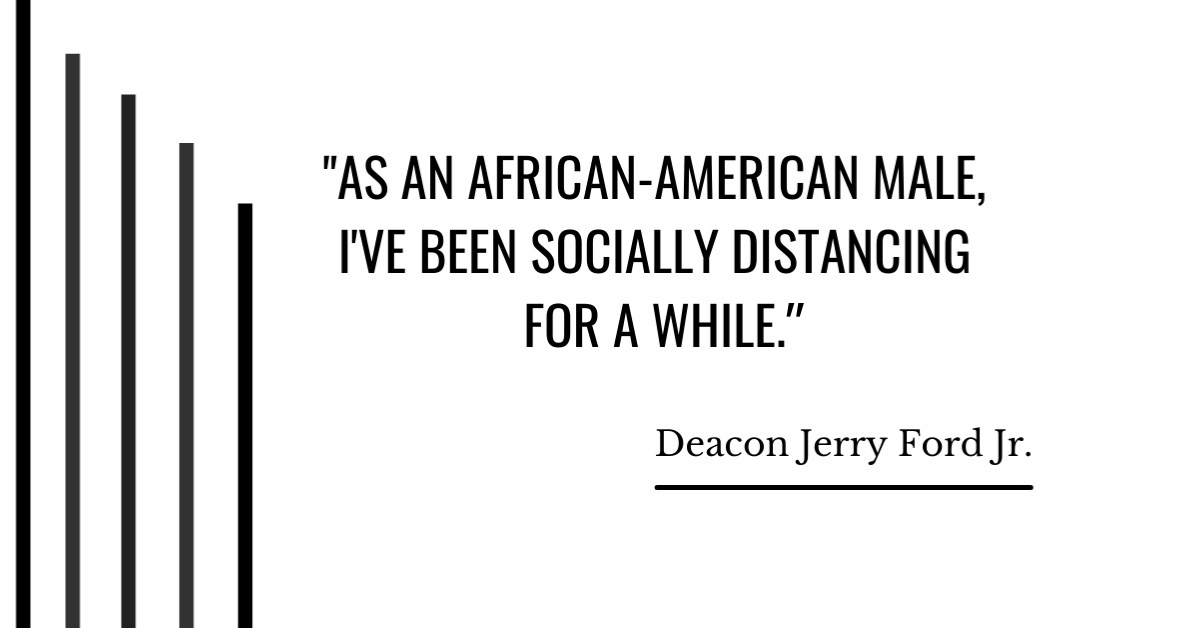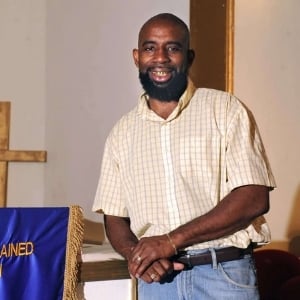Q: How would you personally define violence?
A: Any act of harm to someone else. That's what I see as violence. Any act of harm. It doesn't even have to be physical. I think sometimes emotional violence, the scars run deep, deeper than sometimes physical violence.
Q: Are there any aspects of the pandemic, like social distancing, that you would consider a form of violence?
"Well, for me being an African American male, I’ve been experiencing social distancing for a while."
A: You come in, people automatically step back, and they look at you funny. I don't know if I would consider it violence, but it is a new awkwardness, especially when it comes to the mask. I had someone who made me a camouflage mask, and she didn't make it for me, but she gave it to me… I wore it a couple of times. But then I was like, ‘No, I'm not going to wear that', because it just may come off the wrong way.
Q: Do you think there's any overlap between the structures that cause a pandemic and the structures that cause incarceration?
A: A thousand percent. Like I said, there are things that as a Black male that I've been experiencing my whole life and those systematic things definitely play into what's going on with the pandemic, and its effect on Black and Brown people. They talk about essential workers -which I am one of. I work two days out of the week. I have to actually go to the office to work, and the other three days I'm here at home. But a lot of our people don't even have the opportunity to work from home. They're out there working, and that's one of the reasons why the numbers are so high. We're the ones who are on the frontline, and I'm not talking about the nurses and the doctors, I mean the grocery stores — nobody talks about the grocery store workers. My 17-year-old son is actually a bagger at a grocery store. Grocery store workers, the convenience store workers, gas station employees, those are frontline workers who are dealing with the public, who don't have the opportunity to work from home. You don't need to carry a high degree of education to get these jobs, and they're very conveniently located in our inner cities. That's the reason why I feel like it has been hitting our people hardest, and it ties directly to the impact that the pandemic has had on us.
Q: What support or insight, if any, would you offer to survivors who are working on their healing journey during the pandemic?
"Don't do it on your own."
A: You got to find the right people. I think that's it, man. Don't do it on your own. One of the most impactful things that I did when I came home was to find a support system, and I found that in our church. The people in my church really put their arms around me. They embraced me, they pointed me out. They showed me where to do this and showed me how to do that, and there were a few men in my church that I could look up to as a father figure because growing up my father wasn't an active part of my life. So, there were guys in our church that I could look up to as a father figure. I would definitely say that it is vitally important that you just find a good support system.


